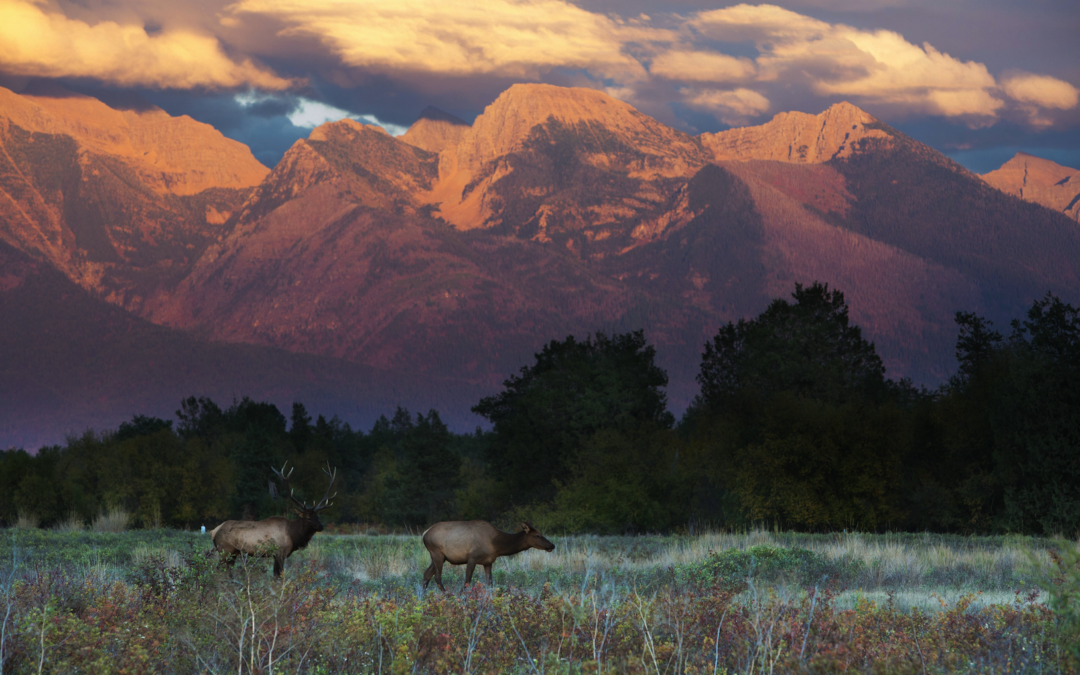Image credit: Ryan Hagerty via The USFWS National Digital Library
For the past few weeks, the conservation sphere has been buzzing about COP27, but as the conference is nearing its end, the attention is beginning to shift to COP15, but what exactly is it? The UN Biodiversity Conference, also known as the Conference of the Parties (COP) to the Convention on Biological Diversity (CBD), is set to take place this year in Montreal, Canada, from December 7th to December 19th. This CBD COP will be the 15th time this conference has convened since 1992 at the Earth Summit in Rio. This summit birthed three new conventions dubbed the Rio Conventions. Biodiversity, Climate Change, and Desertification. Each convention is intrinsically connected to one another but addresses interdependent matters concerning the environment.
COP15 is being chaired by the People’s Republic of China, headed by China’s Minister of Ecology and Environment, Huang Runqiu. COP15 was initially supposed to take place in October 2020 in Kunming, China. Due to the COVID-19 pandemic, the conference was delayed multiple times. One year later, it was announced that COP15 would take place in two parts: one part virtually in October 2021 and the other part in person in May 2022. After another delay, the second session of COP15 will finally and officially take place this December in Montreal, Canada, while still being presented by the People’s Republic of China. Montreal is expecting tens of thousands of delegates this December, bringing a massive boost to local economics and tourism.
What’s being discussed at COP15?
The UN Biodiversity Conference has three principal objectives– the conservation of our world’s biodiversity, ensuring the use of its elements is sustainable, and equally sharing the benefits that may arise from genetic material. COP15 is setting out to develop national strategies that will ultimately conserve biodiversity, attempting to effectively alleviate our world’s biodiversity crisis while ensuring the sustainable use of biodiversity.
The primary goal of this conference is the development of a Post-2020 Global Biodiversity Framework, a doctrine that outlines what nations must do in order to live in harmony with nature by 2050. This year, the goals of the framework will be more outcome-oriented and bring about clear and concise strategies to address the driving causes of biodiversity loss. The Global Biodiversity Framework will hopefully serve as the foundation for all nations to make policy decisions that will control and reverse the global biodiversity crisis.
“Just as biodiversity is critical for ecosystems, thriving ecosystems are critical for a stable climate, because terrestrial and marine ecosystems absorb about 50% of the carbon dioxide released into the atmosphere”
Why is biodiversity important?
A report released by the United Nations stated that approximately one million species are at risk of extinction. Over 41,000 IUCN-assessed species are facing extinction, which is roughly 28% of all assessed species. According to the World Wildlife Fund’s Living Planet Report, wildlife populations have declined by an average of 69% since 1970. There are a plethora of reasons why biodiversity is paramount to the survival of our planet and the human race. Biodiversity benefits food security, maintains clean air and water, increases the quality of life for those living amongst wildlife, stabilizes the climate, and defends and sustains their ecosystems.
Converging the climate and biodiversity crises
Climate change and biodiversity are inextricably linked; many effects of climate change often result in or exacerbate biodiversity loss. Biodiverse and wildlife-rich areas are able to combat some of the more devastating impacts of climate change. The outcomes of the UN Climate Conference to the Parties, COP27, will undoubtedly have implications for the discussions and outcomes of COP15. Combining the solutions that connect nature and climate can prove to bring about real progress in the fight against climate change and its impacts.
At OneNature, we believe now is as good a time as any to reconstruct our society and economy in a way that makes people happier by safeguarding biodiversity, wildlife, and our planet. OneNature believes we must understand the true values of wildlife, including a local and traditional knowledge perspective, support local communities in wildlife stewardship on behalf of the planet, and develop a framework to include wellbeing for all beings in policy and decision-making at all levels. We believe the key to a new and more promising future lies in shifting away from an economy based on unsustainable and inequitable economic growth toward one that values wellbeing. We argue that wildlife conservation must be central to this vision of wellbeing because animal diversity is crucial to sustaining the natural world and human flourishing.
To learn more about COP26 and COP27, check out our previous blog posts on them!
